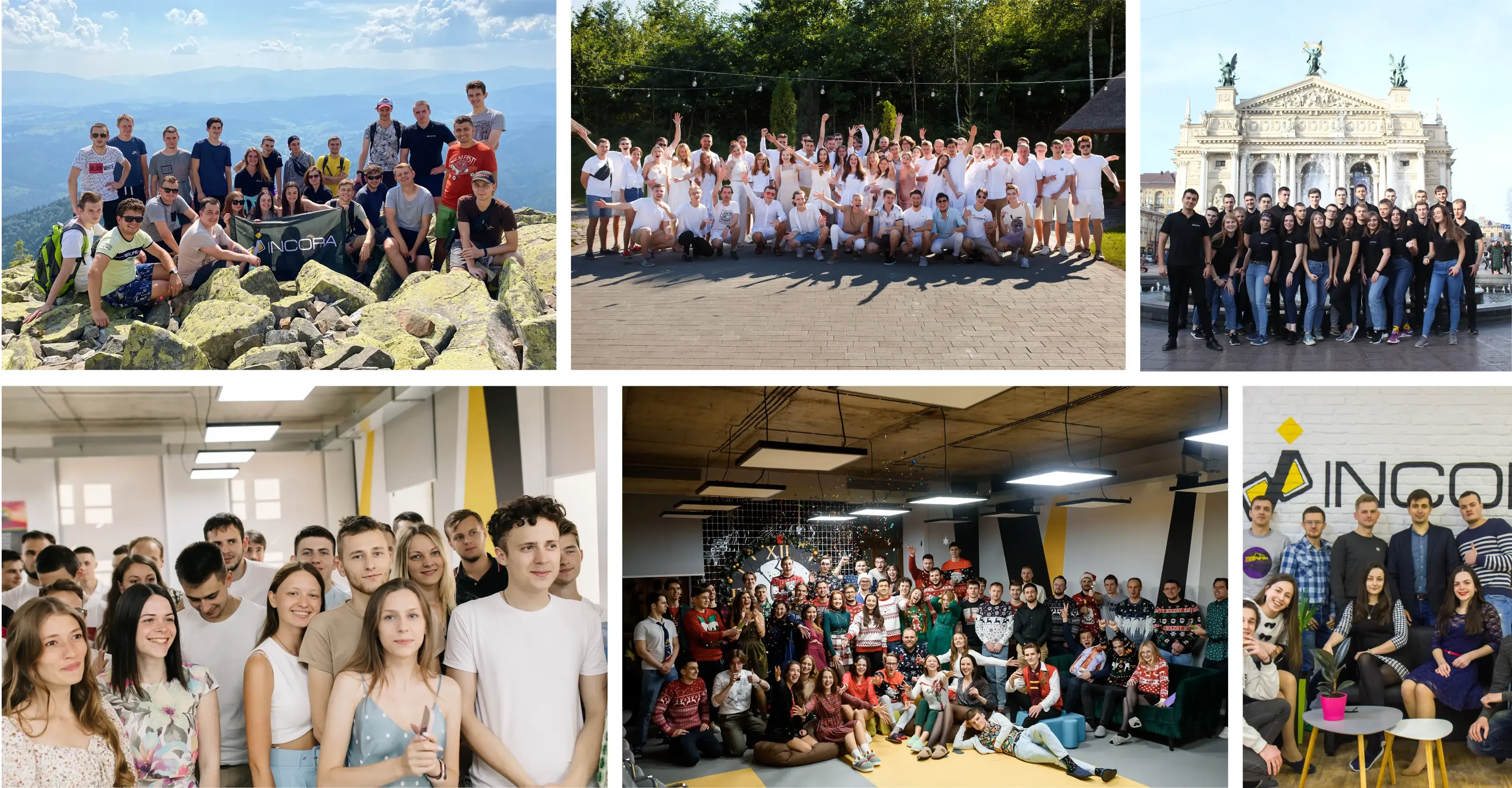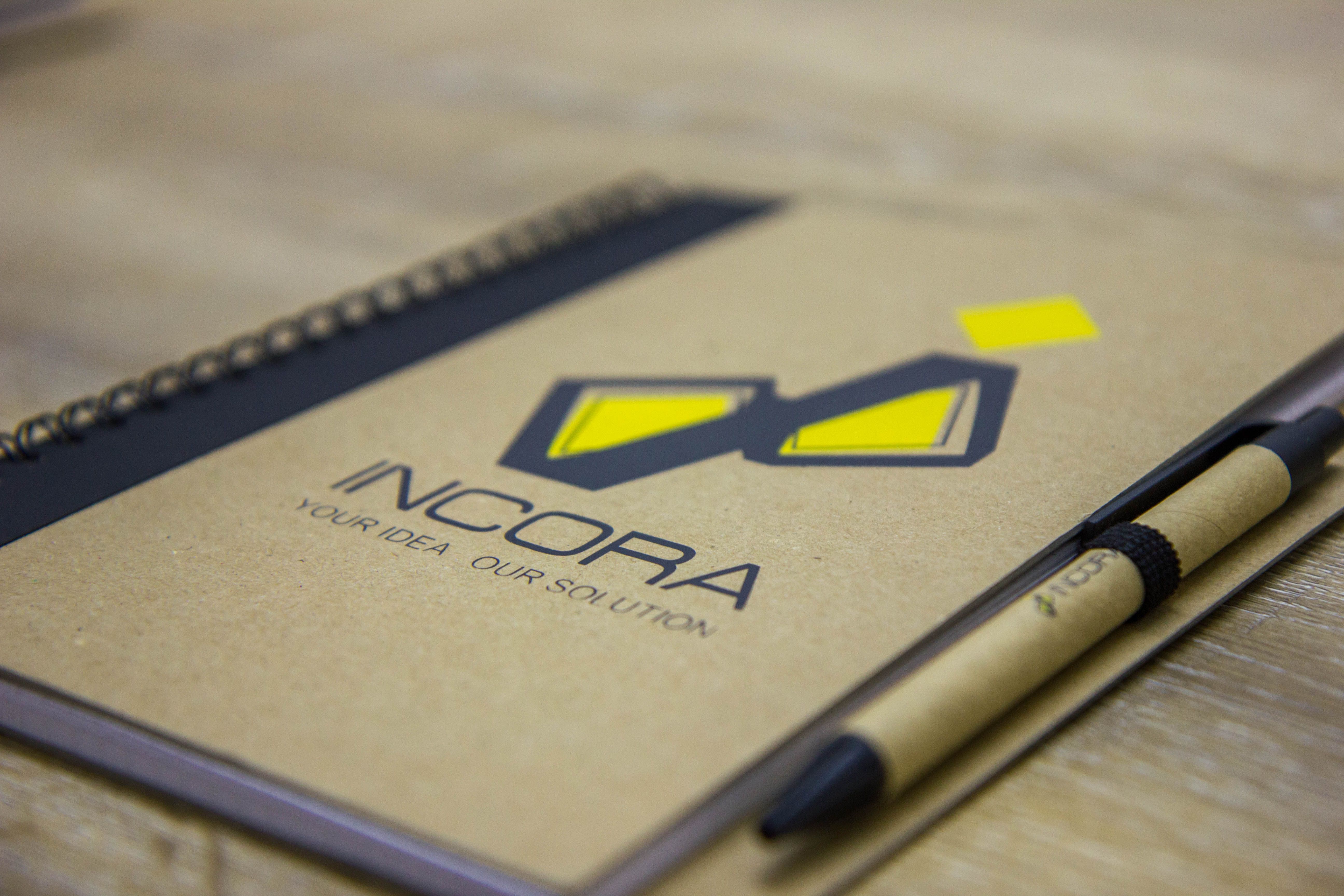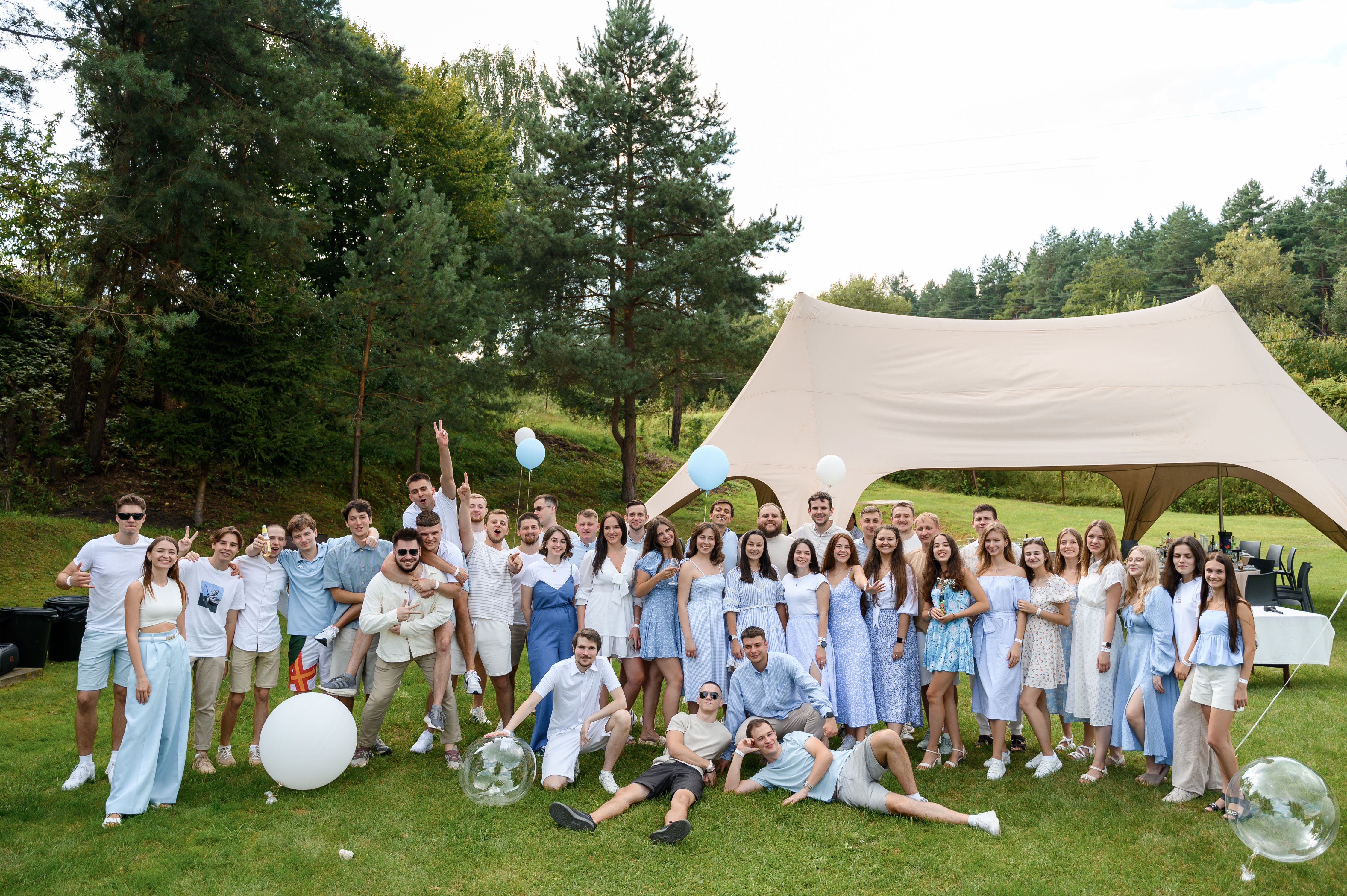10 Years of Incora: A Story of People, Code, and Grit
August 05, 2025 • 94 Views • 11 min read
Bohdan Vasylkiv
CEO & Co-Founder
Ten years ago, Incora started with two people, $2,000, and an idea. Today, it’s a team of 100+, delivering custom software to clients worldwide. This is our story - of humble beginnings, midnight coding sessions, and a culture that’s stayed intact through growth, crisis, and change.

Chapter 1: From Classmates to Co-Founders
In 2015, Bohdan, a 22-year-old Applied Mathematics student at Ivan Franko National University of Lviv, realized he wasn’t passionate about coding - he was passionate about building.
I wasn’t as excited about the technical details. I cared more about how technology could help businesses.
He quit his job, started freelancing, and pitched the idea of starting a company to friends. Most said no - except Tetiana, a classmate and brilliant technologist. They aligned on values, skills, and the dream of starting something real.
Chapter 2: The $2,000 Startup
After agreeing to work together, Bohdan and Tetiana spent time discussing ideas, planning the first steps, and trying to define all the core challenges they might face along the way.
So, the first two steps were:
- To find a few new teammates.
- To rent a place that can be used as an office.
Finding an office space was a relatively easy task: they rented a 32 square meter room in an industrial district and cleaned it themselves. Gathering a team proved challenging: no one was willing to risk their career for a small startup, despite its ambition and potential. Fortunately, they managed to hire two of their friends, who were willing to work in exchange for learning.
We spent our first day scrubbing floors and hauling furniture.
Considering their limited skills and lack of portfolio, our first Incora team undertook small freelance tasks - $20 tasks, primarily consisting of tweaking websites. It helped to train the team, establish credibility, and earn first clients.
We focused on quality, even for small tasks. That mindset shaped our future.
Chapter 3: The First Big Project
After months of freelancing, we landed our first complete Shopify store build. It wasn’t groundbreaking, but it proved we could deliver end-to-end.
Our first end-to-end project helped us better understand our capabilities and identify potential gaps in tech expertise that we need to address if we decide to scale our services. So, we were making small, yet constant steps toward our original vision of the company.
Our team grew to 6, then 10. Additionally, to cover the tech gaps, our team regularly stayed late experimenting, learning new tech stacks, and setting high hiring standards.
We couldn’t offer big salaries, so we looked for passion and potential. Our first hires were friends and dorm neighbors - some of them still work with us today.
Long story short, our first year was more of a friendly freelancing than a full-scale corporate cooperation and custom software development on demand. Moreover, during this time, we didn’t have any corporate brands: there was no name or logo.
The team was so busy with current projects and studying programming that we had no time to come up with a name. We were simply “The team”.
Chapter 4: Naming the Brand
Almost a year later, in 2016, our little nameless startup finally started transforming, and got our name - Incora, a blend of "In Core", symbolizing a small team with a big mission.
When we Googled it, only two pages showed up - and both were ours.
The name stuck. Our small Incora team started to feel like a full-fledged company. From now on, our clients will know how to find us, and we can finally begin taking business scaling more seriously.
Moreover, we were no longer a nameless group of friends. As more developers and business rivals became aware of our existence, we could initiate our first hiring campaigns.
Chapter 5: Growth and the First Move
By the end of the second year of working hard, we had gathered around 15 people under our roof. The number of more complex and interesting projects grew as well. Our first office became crowded, so we decided to move.

We relocated twice. The first space didn’t work out. The second, located in central Lviv, offered an excellent and slightly nostalgic view, making it our new home:
Everyone helped clean the new space. Then we ate pizza, laughed, and made plans, enjoying the view of Lviv High Castle, just like we did in the old office. Everything was just like in the beginning, but already more serious and responsible.
Our Incora team remained small, preserving the core family-like values. Everyone could propose an idea, and we would bring it to life just like we did with our 3rd annual party - Incora picnic, when the whole team goes rafting.
So, at that moment, our corporate culture was set: work hard, help each other, and enjoy the journey.
Chapter 6: From Team to Company
One of the most interesting and strange feelings of the first years was Deja Vu: each year we achieve new goals, grow our team, sign new contracts. Yet, for the first 3-4 years, everything felt familiar: as if we finally reached the true beginning of our company.

However, 2018 marked the actual start for Incora, a year when we reached 30 people and our team faced a new challenge: a larger company with the same name and a much bigger marketing budget emerged.
We were losing traffic and recognition fast.
So, we rebranded to Incora Software, built a marketing team, and relied on client referrals to maintain momentum. It worked, and we hit 50 people the following year.
Still, rapid team scaling was also a breaking point: it was easier to keep in touch even outside the office when we were smaller. But when we reached the team of 50, it became harder.
While the core company activities and active office life kept the original vibes, we couldn’t simply gather the whole team every weekend for a BBQ or to go to a concert anymore.
Chapter 7: COVID and Remote Realities
In 2020, during a business trip to the US, the pandemic hit. The co-founders were stuck abroad; the team went remote.
The team told us to stay in the US and finish the trip. That meant everything.
After a business trip, the whole Incora team stayed remote for a while, yet everyone returned to the office a few months later. Nevertheless, the remote experience changed the team dynamic: we became less casual and more structured. It was time to adapt again.
Chapter 8: Changing Gears
In 2021, Incora Software company made a strategic shift: from short-term tasks to long-term, complex projects. Tetiana also started teaching at her alma mater, which unexpectedly became a hiring pipeline.
At one point, 50% of the team were Tetiana’s students or from her department.
As a result, in addition to sharing our experience and expertise to boost the community, we also discovered new methods to identify and hire the most motivated and promising software developers. Thus, by the end of the 6th year, Incora Software had 80 employees and a two-story office.
Apart from simple scaling, we secured new contacts, signed significantly larger and more interesting projects to work on, and gradually enhanced our niche expertise in various fields. Our team members continued to learn new skills and technologies, including smart contracts or cryptocurrencies.
Chapter 9: Wartime Resilience
In February 2022, the co-founders were again on a US trip when Russia invaded Ukraine.
We were in shock. But the team said: Stay, finish what you started. We'll handle it.
We managed to sign five new contracts. At that moment, despite every significant event in the global markets and Ukraine, we still felt the ground under our feet: our clients were satisfied, and all of our ongoing projects were active for a minimum of a year.
So, in spite of everything, we hosted our 7th anniversary with a BBQ and fundraiser for the Ukrainian Armed Forces. That moment sparked the idea to launch a dedicated fund to support humanitarian causes.
Chapter 10: Adapting to a Changing Market
2023 and 2024 were tough. The war, global tech layoffs, and client hesitation slowed things down. Still, our company chose quality over scale. We streamlined its internal structure and leaned into AI development early.
Our devs were among the first to integrate AI at our clients’ request.

Thanks to our core values and motivation, we seized the opportunity to leverage new-age innovations for higher efficiency, gaining an extra boost over the competitors. Besides, we narrowed down our niche, prioritizing a custom approach to every client and offering efficient solutions for AI business automation.
Now at 100 team members and counting, Incora is stable, strong, and evolving with the market.
Looking Ahead
We can’t predict what the next 10 years will bring. But we do know this: Incora was built on people. From the first office clean-up to today, every milestone has been achieved because of the individuals who showed up, stayed late, took risks, and believed.
Thank you to our early clients, loyal employees, students-turned-colleagues, and everyone who joined the journey!
We’re just getting started.
What’s your impression after reading this?
Love it!
24
Valuable
1
Exciting
1
Unsatisfied
1
FAQ
Let us address your doubts and clarify key points from the article for better understanding.
YOU MAY ALSO LIKE
Let’s talk!
This site uses cookies to improve your user experience. Read our Privacy Policy
Accept
Share this article